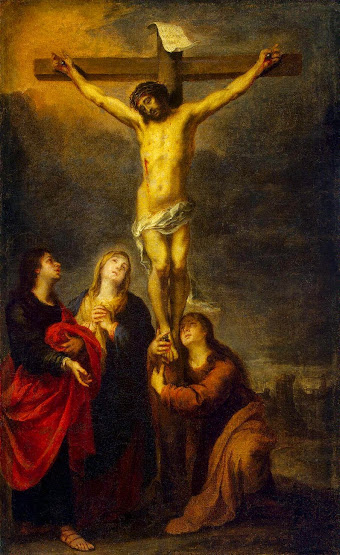Mary set out
and traveled to the hill country in haste
to a town of Judah
Mary's concern was consistently with how she could be a blessing to others. Even after receiving what must have been a challenging message from Gabriel she still let the one part of that message that might have indicated a need on the part of someone else motivate her and immediately set her direction.
And behold, Elizabeth, your relative, has also conceived a son in her old age, and this is the sixth month for her who was called barren; (see Luke 1:36)
Any pregnancy is difficult enough, but one assumes that old age only compounds the challenge, making it even harder for Elizabeth to fulfill her own role and obligations in her family. Hopefully Zechariah tried to help, but it was understandable why another woman would be more able to assist with the domestic matters to which Elizabeth was less and less able to attend.
where she entered the house of Zechariah
and greeted Elizabeth.
Mary went in haste to a place where she could help, a bless where she would be welcomed and could be a blessing.
Most blessed are you among women,
and blessed is the fruit of your womb.
Mary was blessed herself in order that she could be a blessing to others. God knew, and Mary's fiat proved, that she would be one hundred percent available for him and his will, ready to move in haste in response to his call and in response to the need in the world.
Mary was to be the ark of the New Covenant who would bring God's presence into situations such as that of Elizabeth, to that of Simeon in the temple, to Bernadette at Lourdes, to the children at Fatima, to Saint Juan Diego, and to so many others. No one else could have filled this role that was given to Mary. Only she was sufficiently free from self-involvement that her presence could be completely transparent to the presence of Jesus himself.
And how does this happen to me,
that the mother of my Lord should come to me?
For at the moment the sound of your greeting reached my ears,
the infant in my womb leaped for joy.
Mary brought Jesus to Elizabeth and inspired joy in her heart and the heart of her yet unborn child. The moment when the infant leapt for joy was traditionally understood as the moment when he was sanctified himself from original sin while still yet in his mother's womb. We see in this example that the blessings Mary brings were not merely sentimental, or even helpful in challenging circumstances, or even restorative in situations of real hardship. Mary brought transformation. This is because she brought Jesus, yes, but also because she at the same time demonstrated par excellence how to relate to him.
My soul proclaims the greatness of the Lord;
my spirit rejoices in God my Savior,
for he has looked with favor on his lowly servant.
Mary demonstrated how to be sufficiently empty of her own agenda to be completely available for God, to be so humble that his presence overflowed from her to the situations of her daily life. Yes, the Visitation was a high drama of the Spirit. But it was also a mundane and regular aspect of life in those times. The same could be said for the Presentation. It wasn't as though Mary was doing mighty deeds. It was the Almighty that had done and continued to do anything good in her that made her a blessing. And this, she would have us know, was available not only to her, but to all those who fear him in every generation, to the lowly, to those who hunger for righteousness, and to those who wait on the promises of God.
Mary still comes in haste to those who will welcome her and for whom she can bring blessings from God. May we be open to her coming, and learn from the song she teaches us to become like her, to become, in turn, blessings and occasions of the experience of God's presence for others.
The LORD, your God, is in your midst,
a mighty savior;
He will rejoice over you with gladness,
and renew you in his love,
He will sing joyfully because of you,
as one sings at festivals.













